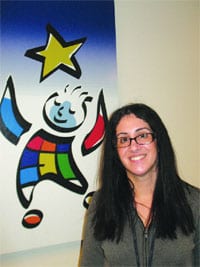American Cancer Society Offers New Year’s Resolutions For A Healthy 2006
SPRINGFIELD — It’s time to ring in the New Year — time for fun and frivolity with noise makers, champagne, kisses at midnight. And it’s time for that annual self-improvement ritual, preparing your list of New Year’s Resolutions.
High atop nearly everyone’s list is the desire to lead a healthier life in the New Year. The American Cancer Society can help you improve your odds with tips on healthy eating, becoming more active, quitting smoking, and getting regular checkups that can greatly reduce the risk of developing cancer and help people detect cancer early, when it’s most treatable.
Here is a list of the Society’s New Year’s resolutions for a fresh start toward better health in 2006:
- Eat a variety of healthful foods, with an emphasis on plant sources.
Include five or more servings of a variety of vegetables and fruits in your diet each day, choose whole grains rather than processed (refined) grains and sugars and limit your consumption of red meat and processed meat. - Adopt a more physically active lifestyle.
For adults that means engaging in at least moderate activity for 30 minutes or more on five or more days of the week and for children and adolescents it means 60 minutes per day of moderate-to vigorous physical activity at least five days a week. - Maintain a healthful weight throughout life.
- If you drink alcoholic beverages, limit consumption.
Alcohol increases the risk of several cancers. Men who drink alcohol should limit their intake to no more than two drinks per day, and women to one drink per day. Regular consumption of even a few drinks per week is associated with an increased risk of breast cancer in women, so women at high risk of the disease may want to consider not drinking any alcohol. - If you’re a smoker, quit.
There’s no one right way to quit, but there are some key factors in quitting smoking successfully: make the decision to quit; set a quit date and choose a quit plan; learn how to deal with the withdrawal symptoms and create a maintenance program. No one has to quit alone. Call (877) YES-QUIT (877) 937-7848) to obtain information on a program run by the American Cancer Society or be referred to a state-run program. - You can also join the ACS Action NetworkSM and work as a grassroots advocate to enact public policies to help smokers quit, such as insurance coverage for tobacco cessation programs. To learn more about becoming an advocate, call 1-800-ACS-2345 or visit www.cancer.org.
- Talk with your doctor about a regular schedule for cancer screening tests based on your age and personal risk factors.
These tests include mammograms and clinical breast exams for breast cancer; fecal occult blood test (FOBT), sigmoidoscopy, and colonoscopy for colon cancer; PSA test for prostate cancer; and the Pap test for cervical cancer.
The American Cancer Society is here to help you achieve your resolutions. Call (800)-ACS-2345 anytime, day or night, or log onto www.cancer.org.



